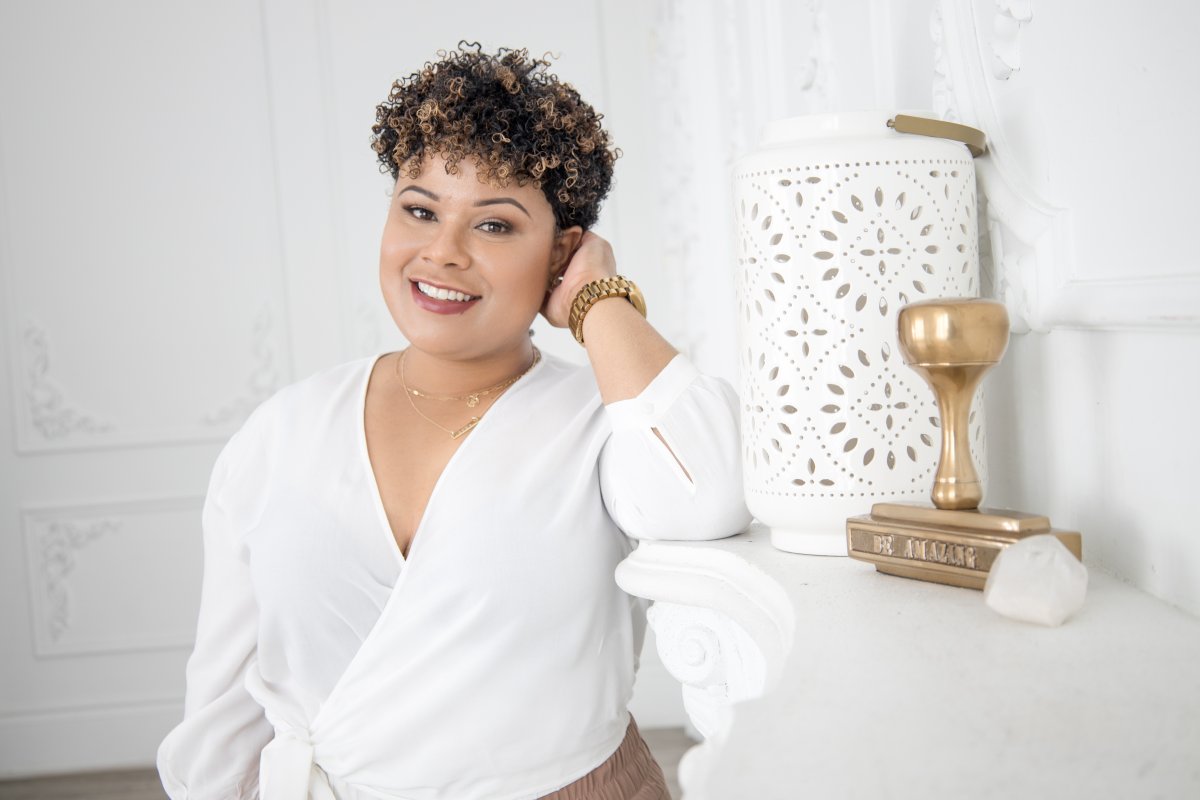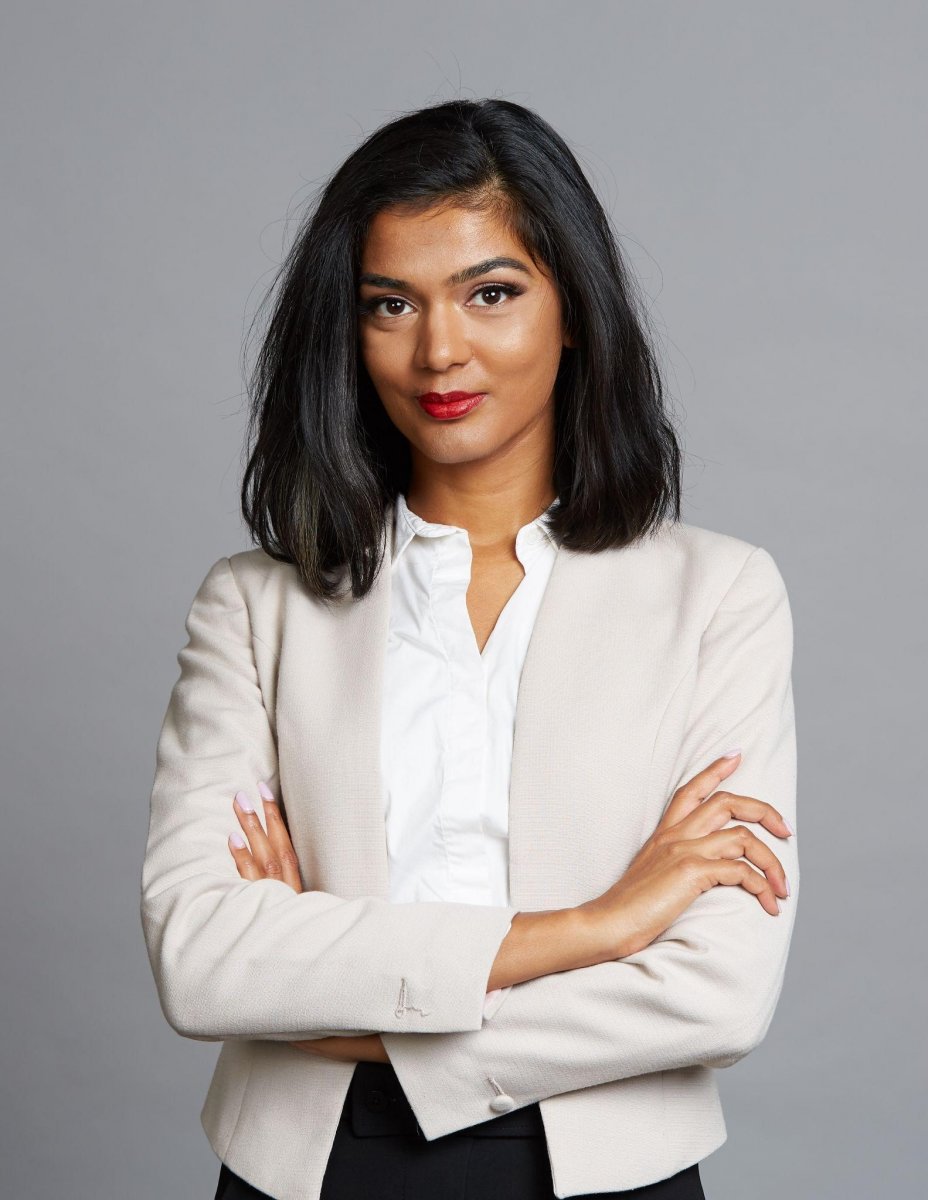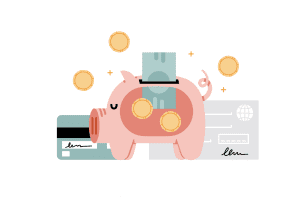Vanessa Bowen, Money Manager and Creator of Mint Worthy, wants to improve the complicated relationships women can have with money.
Using a holistic approach to financial counselling, she helps target the root beliefs that often block women from reaching their financial goals.
“A lot of it has to do with our ingrained beliefs. So for instance, one of the discovery questions I ask Mint Worthy clients is, ‘what is the first thing you think about when you think of Wall Street or Bay Street?’ 99 percent of them say men or men in suits,” said Bowen. She added that women are more likely to resign to the idea that money is a man’s world and set their financial lives on the backburner.
Early in her career, Bowen worked as a Chartered Professional Accountant for PwC. She guided companies to make responsible decisions but unfortunately, those skills didn’t translate into her personal finances.
She lived in a condo she couldn’t afford and spent her money on projecting a luxury lifestyle beyond her means. When her unsustainable lifestyle inevitably didn’t pan out, Bowen’s mentor nudged her into budgeting and planning for the future. Bowen gave in to the siren call of the budget and that’s when she saw her life change. Over the next five years, she saved up $100,000 to invest and she was finally free. Now she’s returning the favour many times over with Mint Worthy. Friends and clients appreciate her much-needed consultation services, especially after the year we’ve had.
When the COVID-19 pandemic hit there was a sudden financial emergency. Businesses were shutting down for good and handing out layoffs left and right. People couldn’t pay rent..“When the pandemic hit everyone stopped for the first time in forever,” said Bowen, “we had this universal focus on our finances.”
Over the course of the pandemic, Bowen’s seen people looking at money differently. And she said that 84 percent of Canadians want to manage their finances better post-COVID. We can’t spend as much as we used to on things like going to the movies or eating at restaurants and that might be a good thing. Bowen wants to use her journey to help women take advantage of this time and start developing healthy spending habits. That way, they can flourish financially and pursue their dreams no matter what the world throws at them.
For this week’s Women Who Lead, Bay Street Bull spoke with Vanessa Bowen, Creator of Mint Worthy about establishing good financial habits and helping women improve the way they think about their finances.
[vc_text_separator title=”Q&A” color=”custom” style=”double” border_width=”2″ accent_color=”#c2952c”]
In the past, you worked in accounting. You had a financial background. What inspired you to branch off on your own and start Mint Worthy?
It was my journey with money. Like most people, no one taught me how money worked. I had no idea what to do with my money. So when I graduated, I started working for PwC and I just spent my money. Everything for me at that time was about lifestyle and spending just to spend. I did that—and I got myself into a ton of debt, then I had this moment of, ‘What are you doing?’ This isn’t the life you envisioned. This isn’t what you hoped for. A little bit after that there were two major turning points [before founding Mint Worthy.]
The first one, I called my landlord. I had been renting this condo clearly over my means for over a year. I was a good tenant and I asked him if I could break my lease because I couldn’t afford the rent. And he said, no. I was bawling my eyes out and realized, okay, I need to clean up this financial mess somehow.
Around that same time, I had this mentor start picking at me about my finances and ask about how I was managing them. Did I have a budget? I was so reluctant. I said, “No, I don’t have a budget. that’s not for me.” But she tricked me. She invited me over to her house, sat me down, created a budget, and that’s when things changed for me. That’s when I got serious about my finances. I was looking at where I was spending, where I should not be spending, how to save and how to get out of debt. It started this passion project where I was helping people who were in my circle. It was mainly women that I was helping because they had the same beliefs and insecurities that I had. It started as this passion project until I realized, this is what I’m called to do. So, I left my corporate job to start Mint Worthy.
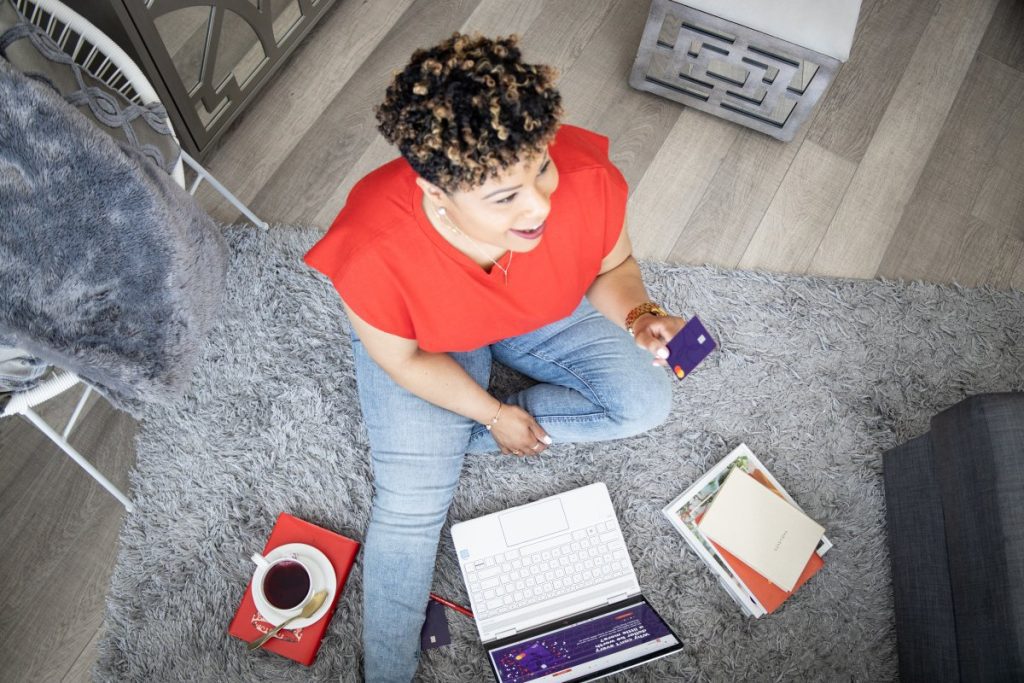

What was it like leaving a stable corporate career and betting on yourself?
It was scary. And I didn’t build Mint Worthy on the side and then leave my career. I tried for about three years, but I was an accounting manager so my career, in terms of timing, was demanding. I worked late nights. I worked weekends. I didn’t have the time. I didn’t have a business that I was leaving to just continue with—I was starting from scratch. It was nerve-wracking, but I always believe that if you have this calling in your heart where something keeps nagging you, you have to pursue it. I believe if you pursue it, the right people and opportunities will come. About a week after I quit, I happened to be at this seminar and I met this lady who later became my first business coach.
She was the one who just went step-by-step through all the things that I had no clue about. And then from there, it was people coming into my life that helped me along this journey and supported me, and taught me things. It was scary, to say the least, but you learn as you get into it. We think of entrepreneurship as this great fun thing and it’s going to be this great adventure and then you’re in it. And you think, ‘Oh no, it’s hella scary, hella crazy.’ You don’t know what you’re doing. And you just keep going until you figure it out.
Was there ever a turning point in yourself or with Mint Worthy where you thought, ‘This is it. I’m hitting my stride. We’re going to move?’
My first year and a half [into starting Mint Worthy] I thought, I don’t know what I’m doing. Am I even qualified to talk about this? I had all of the typical [mental] blocks. The first year I was working more on feeling that confidence in myself. A year and a half in, after I had seen the success of my clients, I thought, ‘I’m onto something here. Let’s just keep going.’
Your women-focused outlook on managing your finances started because you saw similarities between how a lot of women manage their money. You’ve continued to go forward with being women-focused. Is there a reason behind that?
Women have a different relationship with money. Going deeper into my mindset is how I got into neuro-linguistic programming or NLP. I learned how women have this different emotional connection and relationship with money. A lot of it has to do with our ingrained beliefs. So for instance, one of the discovery questions I ask my clients is, ‘What is the first thing you think about when you think of Wall Street or Bay Street?’ 99 percent of them say men. Although society is progressing, we still have this ingrained image of, ‘Money’s a man’s world’ or ‘Men are better at money than women.’ We have this other side-belief that you can’t be financially secure without a partner.
I had a client two weeks ago. She’s only 35 and her parents recently said to her, ‘You need to make sure you marry someone rich because you have expensive tastes.’
And so the conversations that little girls and little boys, or women and men, have around money and what it means to work and have money and build money are totally different.
Women have this different complex relationship with money. We live life through emotion. We internalize things deeper than men. We’re hard on ourselves and we compare ourselves. All of this impacts our sense of self-worth, which then impacts how we spend our money. Whether it’s to feel better through retail therapy or to make ourselves look good or portray this lifestyle, we have a lot more going on when it comes to money than men. I just wanted to be that support for women. I wanted to provide them with a safe space to admit their money failures without judgment. I wanted to heal their relationship with money and reconnect them to their worth. I want women to be able to sit at that same table with men and have the same conversations about money that men were.
You mentioned living in a condo that was over your budget that you got stuck in. Is there a common mistake that you see a lot of women making? Or is there an area that we’re all spending our money in that we need to rethink?
There is this whole issue of [women] overspending, being impulsive with our spending, and spending to self-soothe. One of the things Mint Worthy clients and I do is go to the root. You have to figure out, ‘What am I spending for? What void is it filling?’ That’s one of the biggest mistakes when it comes to women. We just have this spending habit that we need to go deeper into to figure out the cause.
Another big mistake is that we tend to ignore finances a lot more. We think, ‘If I don’t look at them, then maybe they’ll magically get better.’ All of my clients were just living with their heads in the sand.
I know the financial world and financial jargon can be complicated and overwhelming, but we’re not solving the problem if we’re hiding from it. I’m all about changing the way women relate to money by making it simple. When you create ways to change your money that are simple, we make greater change. For instance, using something like the PC Money Account, where you can get rewarded for things like paying your monthly bills, which we typically don’t like to do. I have my clients use that account because it changes the way people think about money. It changes the way they relate to the bills. And can help us change our spending habits.
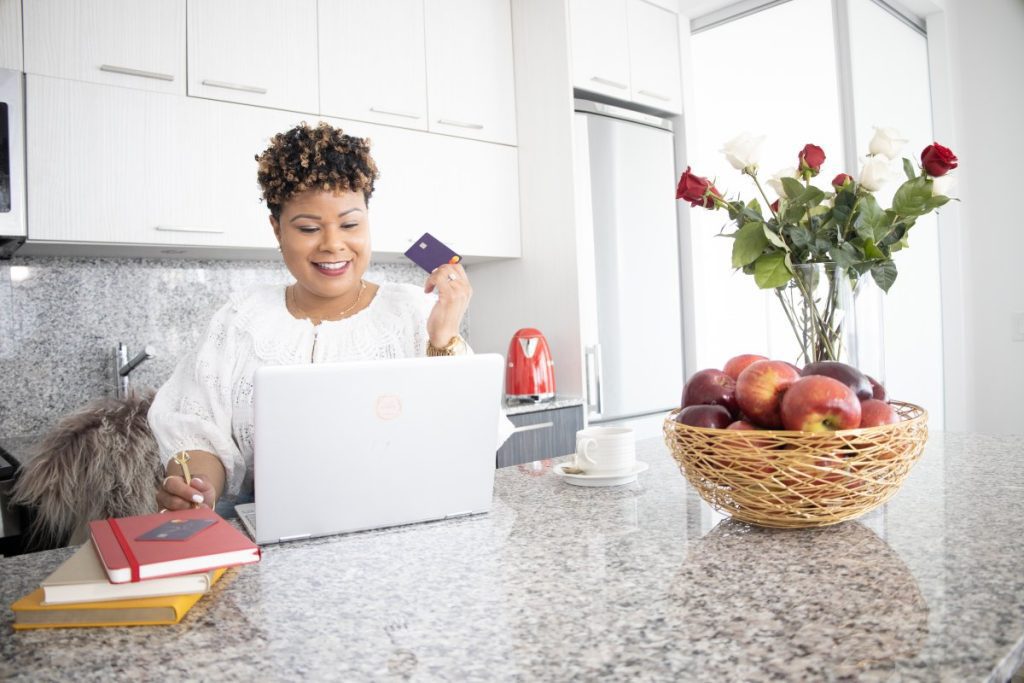

Is there a common small habit that we can all implement in our daily lives to help us get on track or kick start our journey to better financial planning and budgeting?
Don’t kill me, but I’m going to say it’s creating a budget. I know we don’t like to talk about the B-word. I was guilty of that. I wanted to run away from it. But I think truly creating a budget is one of the most guaranteed ways that you can change your financial life because it’s telling your money where to go instead of your money going wherever it wants to. It doesn’t have to be daunting to create it. One small way to start is to track your spending for one month. That’s it. Track your spending and see where your money’s going. Then you can put it in categories. This month I spent X on clothing, I spent X on eating out and I spent X on groceries. From there you go, ‘okay, here’s what I’m spending now, how do I want to spend going forward?’ Then you can create a budget.
Once you create your budget, then you can have different budgeting hacks. For instance, one of my favorite budgeting hacks is using loyalty programs. I use the PC Money Account where I earn 10 PC optimum points on every dollar I spend anywhere. I’m racking in my points faster. I then redeem them for free groceries. I take the money I save in my grocery budget and I put that towards a savings account, which I call my life enjoyment account. It’s my little special savings account where I get to spend my money on the things I enjoy without feeling guilty and without going into debt.
You can take that money you saved on groceries, and now you can start paying down your debt. Now you can start putting your money towards an emergency fund. So if COVID happens in the future, you’re more financially secure. It all starts with having a budget.
The pandemic caused everyone to rethink their finances. Whether it be losing your job or moving, there were a lot of finance-related personal struggles. Did you see a trend in how people were dealing with their finances?
When the pandemic hit everyone stopped for the first time in forever. We had this universal focus on our finances. I saw people shifting to look for more ways to do more with their dollars. Also looking at where they were spending. A lot of our entertainment and leisure expenses were cut. People were looking at what’s a need versus a want, which we didn’t see before.
I was reading in a recent study by PC Money Account where 84 percent of Canadians said that they’re now taking steps to better manage their finances since the pandemic.
I think an emergency fund is now going to be a top priority because a lot of people, including my clients, didn’t have an adequate emergency fund. So when things hit, everyone thought, how do I pay the bills now?
The world’s changed in so many ways, but this feels like it’s going to be a good change because we’re all taking our finances by the helm.
People said smart spending was one of their biggest accomplishments of last year. We saw people spending with intention. We all rose up and started supporting local businesses or supporting different social causes. I think we’re going to see people spending their money in ways that feel more aligned to them.
RELATED: OPINION: Take Control of Your Finances, Women!
A financial advisor at a bank and told me that the best they would have told people was to have three months’ worth of emergency savings, six months tops. No one ever thought you’d need more than six months of emergency savings. And now we are over a year!
It’s crazy. I always tell my clients six to 12 and people thought I was crazy, but it was for this reason. I said, “You never know what type of emergency is going to hit and you don’t know how long it’s going to be.” A lot of my clients were geared up with the six to 12, thank goodness. But COVID is now showing us we’re going to need 12 to 24 because who knows when we’re going to be done.


Having run Mint Worthy for a few years now, do you have any favorite stories of transformations that clients have made in their life?
I had one client over the last year who paid off $50,000 in debt. Another client is geared to be debt-free by August. Now we’re not going anywhere, so my clients are focusing their money on paying off their debts and building their emergency fund.
On the other side, I have clients who are entrepreneurs and non-entrepreneurs. For my entrepreneurial clients, because my coaching is, I like to say, holistic with my NLP background, I focus a lot on the money mindset piece. So when the pandemic hit, my entrepreneurial clients had this fear that people wouldn’t have money to buy their products or services and that their businesses were going to go under. For those clients, it was a lot of work on the mindset, the energy, and the beliefs about money. I’ve had several of them, throughout the pandemic, hit their highest income months and sustain those months. So, yeah, it’s been incredible what they’ve been able to achieve, even though it’s been a whirlwind and such a change in the financial landscape. It’s a testament to the fact that it doesn’t matter what the economic climate looks like, you can still create your own financial success.
With the economic climate, so many expenses got pulled back during the pandemic that are once again going to be available to spend on. Do you have advice for keeping that budget once all those new temptations open back up?
That’s why I think right now is the perfect time to create a budget and start building [good] money habits so that when those things open up, you’re not tempted. You’re not falling back to the old ways of being.
You want to make sure you have enough life in your budget because what happens is we think, ‘Oh, I can’t spend on this Uber eats or I can’t go out with my friends.’ When we do that, we don’t stick to our plans. It’s the surest way not to. When things open up, have that balance, make sure your budget and your spending plans have enough life for you to do those things, but still commit to paying down your debt and putting money towards your emergency fund.
With Mint Worthy what’s your overall mission for your coaching and your business and yourself?
The vision statement of Mint Worthy is, a world where women live their most bold, fearless, and courageous lives and go after their dreams regardless of the size of their bank account. And that’s truly the vision, the mission, the purpose because as women we have these dreams in our hearts, but then they become dormant and they die inside of us. And for me, that first question after the dream hits or after the goal hits is, do I have the money to invest in this? Or can I leave my corporate job to pursue this? How am I going to pay the bills? How am I going to take care of my family? And so we’re walking around with all these dreams that die because of our financial life. And that’s the thing I want to change. I want women to know that they can change their money story.
But the biggest thing is changing their sense of deservingness. Most of the time, across all of my clients, when we boil it down to their biggest money block, It’s that they don’t feel that they’re worthy and deserving of more. If I could [help] women to feel like they deserve more and show them how to curb their spending to save and invest in their dreams, then for me, that’s creating a world where women are going after the things that are in their hearts.
[vc_row][vc_column][vc_separator color=”custom” accent_color=”#c2952c“][/vc_column][/vc_row]
[yikes-mailchimp form=”1″ title=”1″ submit=”SUBSCRIBE”]


